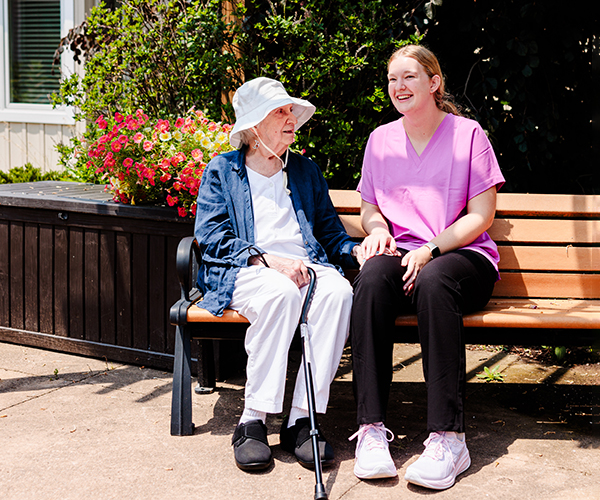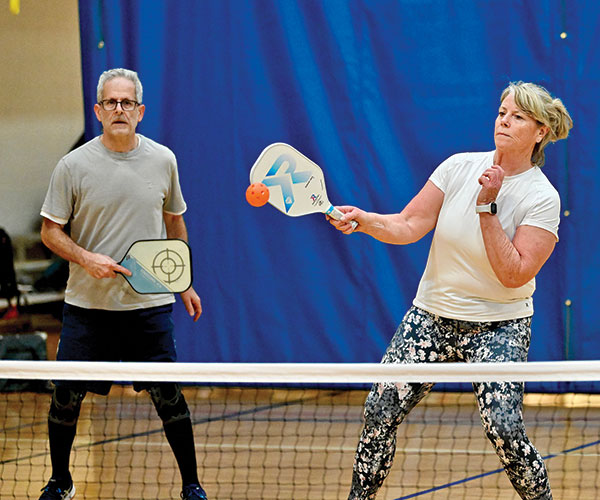An estimated 4.5 million Americans suffer from Alzheimer's disease, but the memory loss, disorientation and other symptoms of dementia that accompany the illness affect the entire family. As the disease progresses, communication may grow increasingly difficult. Jan H. Bohinc, program director for the Alzheimer's Association Cleveland Area Chapter, offers tips on how to make the most out of conversations.
Limit distractions. Find a quiet place, speak slowly and maintain eye contact.
Tap into the familiar. Because long-term memory is more intact than recent information, favorite childhood songs and photos are good conversation starters. "It's not a quiz," Bohinc stresses. "You tell the story: •Oh, here's a picture of you and me when we first got married. Isn't this beautiful? We had such a good time together.' " Use small words she's known since childhood so she's more likely to understand.
Stick to simple explanations. If your loved one wants to know why there's a dog in church, it may be futile to explain that the animal is a guide dog and belongs to the blind woman. You may have more success by simply saying, "The dog came inside because it's cold outside."
Acknowledge feelings. "A lot of times, things like wanting to go home have more to do with wanting to feel safe and secure," Bohinc explains. Focus on his feelings rather than the surface topic.
Use touch. "As the person progresses in the illness, they lose their ability to communicate verbally, but that doesn't mean that they aren't able to communicate in other ways," says Bohinc. A caress on the face or hand can be reassuring.
Join them in their world. "There comes a certain point when it's not helpful to remind them of facts that they're not able to retain," Bohinc says. When your loved one wants to talk about his long-deceased mother, don't try to convince him that she died 20 years ago. Instead, say, "Your mother is really important to me. Tell me about her."
Change the subject. If your loved one becomes upset to the point of anger, redirect her attention: "Come on, let's have some pie," or "I'll put on some music. That always helps me feel better."
For more techniques to enhance communication, call the Alzheimer's Association Cleveland Area Chapter at (216) 721-8457.



